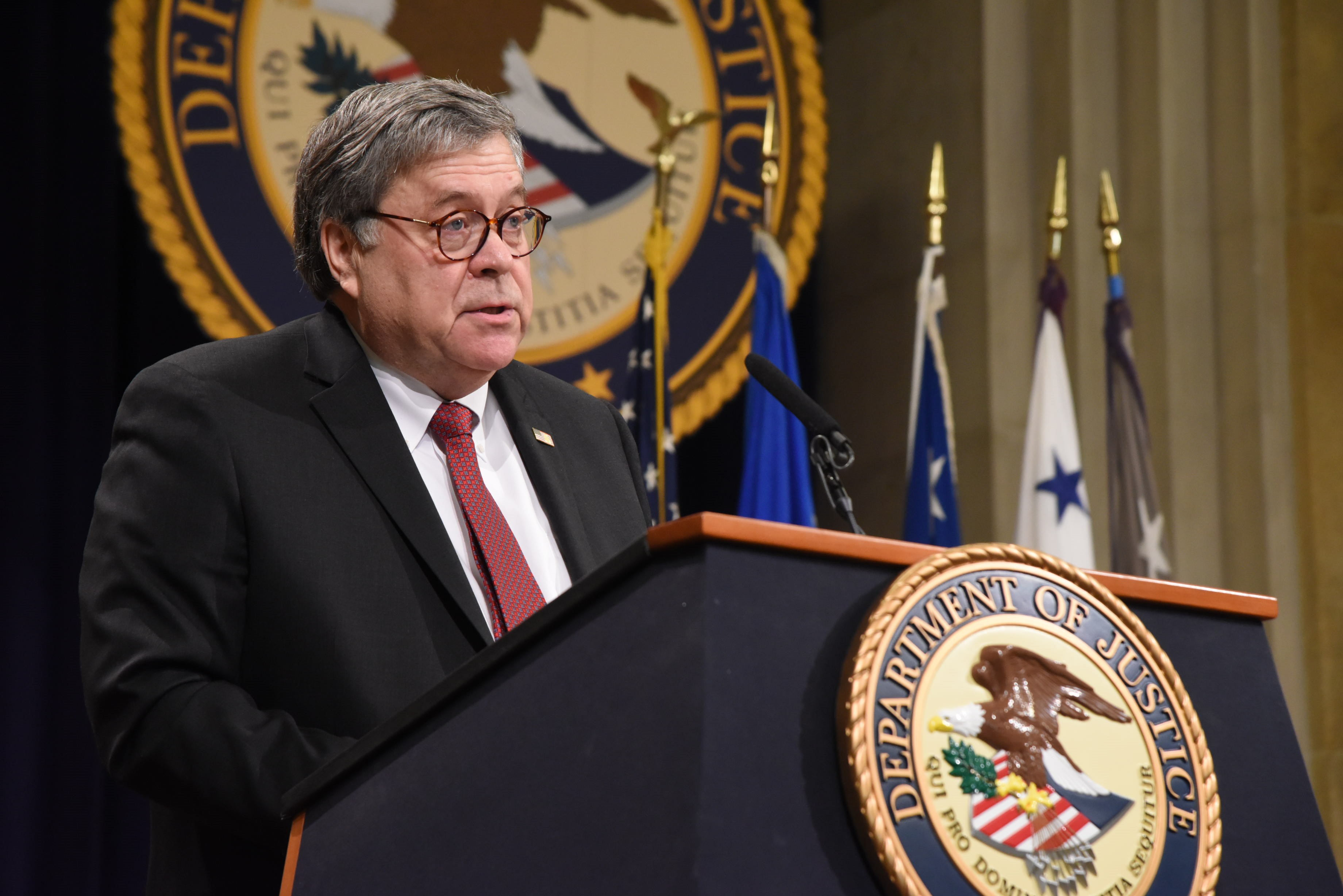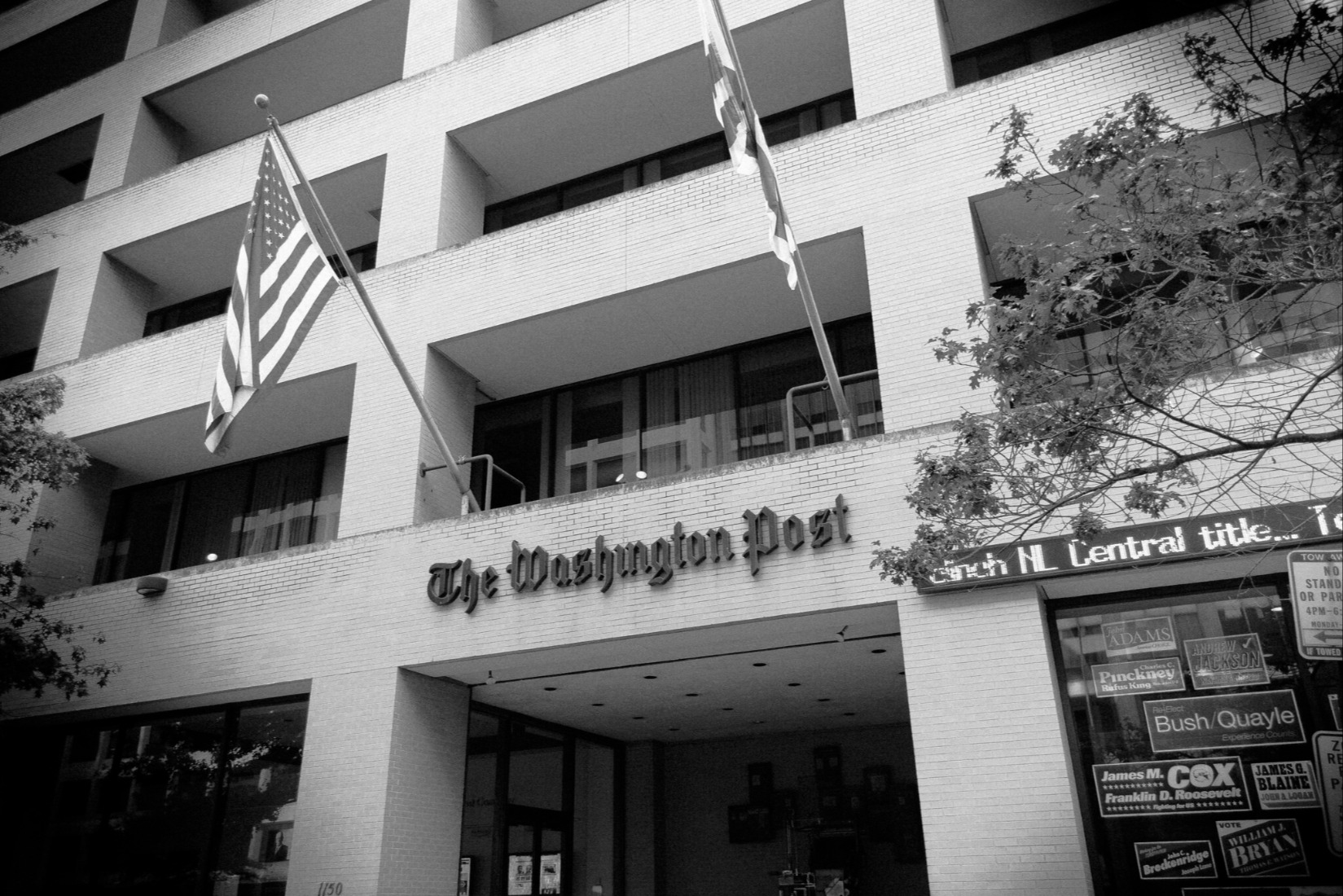Counterintelligence Responsibilities and the 2020 Election: What Are the Rules of the Road?
The attorney general has now directed John Durham, the U.S.

Published by The Lawfare Institute
in Cooperation With

The attorney general has now directed John Durham, the U.S. attorney in Connecticut, to examine how the FBI’s investigation into Russian interference in the 2016 election began, along with related investigations of Trump campaign affiliates. The new directive appears to be in response to the president’s repeated urging to “investigate the investigators,” although so far, early indications suggest that Durham is conducting a “review” and not an “investigation.” In an interview with Fox News, the attorney general elaborated on the reasoning behind his directive to Durham, saying that he has so far not gotten adequate answers to his questions about the origins of the investigation, and that while it’s important to look at foreign influence, it’s also important to look at whether government agents abused their power. He further defended his use of accusations that “spying” took place. And the president has accused former officials of “treason” —an accusation that, in any other political environment in my lifetime, would have triggered a far more dramatic response from Congress, the media and the public.
Despite these comments by the president and the attorney general, there are serious reasons to conduct a review of policies and procedures governing national security investigations involving political campaigns. It is important to ensure that investigators have the proper legal guidance, policy direction and rules of the road to do their jobs as the country approaches the 2020 election. But the administration’s rhetoric diminishes the legitimate value that this review could bring.
As currently articulated by the attorney general, the review could go in different directions. The outcome is of great consequence for protecting the 2020 election from foreign influence. One approach is for the review to be backward-looking. In this model, Durham would look at how the investigation into Russian interference started, along with the sourcing on the information provided to the FBI by Christopher Steele, the information that went into the Foreign Intelligence Surveillance Act (FISA) application related to Carter Page, the evaluation of sources and related matters. This type of review would appear to duplicate work that is presumably being done by the Department of Justice inspector general. It would be geared toward uncovering wrongdoing and holding former government officials accountable (mostly likely in the form of public reprimand, as it’s difficult to imagine criminal wrongdoing). And indeed, punishment for former officials involved in these investigations is certainly the outcome that the president seems most interested in.
A different—and sounder—approach to the Durham-led review would be forward-looking. This review would not dive into the same matters under review by the inspector general, and it would not be in search of facts indicating improper intent on the part of current or former government agents who were involved in the 2016 investigations. Instead, such a review would focus primarily on policies and procedures governing national security investigations involving political campaigns or affiliated individuals, with a focus on what comes next. This type of review—if conducted quickly, so that necessary changes can be made—would serve an important function by establishing the rules of the road for 2020.
Under any circumstances, conducting investigations involving political candidates or campaigns is highly sensitive. But highly sensitive is not the same as unheard of. The Attorney General’s Guidelines for Domestic FBI Operations do not distinguish between investigations of a purely criminal investigative nature and investigations involving national security, including counterintelligence, aspects. Instead, the guidelines apply to all investigations, allowing for continuity in investigations where there are both criminal investigative and national security aspects. The Attorney General’s Guidelines contain provisions for “sensitive investigative matters”:
SENSITIVE INVESTIGATIVE MATTER: an investigative matter involving the activities of a domestic public official or political candidate (involving corruption or a threat to the national security), religious or political organization or individual prominent in such an organization, or news media, or any other matter which, in the judgment of the official authorizing an investigation, should be brought to the attention of FBI Headquarters and other Department of Justice officials.
Thus, it is not as if investigations involving sensitive matters and national security are something new; they are not. They are contemplated in guidelines and have been for many years. The guidelines also define sensitive monitoring circumstances, which include circumstances in which elected officials, among others, are affected or targeted by certain investigative techniques. The Attorney General’s Guidelines include provisions regarding which entities within the FBI and the Department of Justice must be notified that investigations involving sensitive matters have been opened. But the details regarding exactly who (or, more accurately, which officials at what level or position) within the FBI and the Department of Justice would need to approve openings of investigations, and who would need to provide approval to implement or (when appropriate) request court approval for sophisticated investigative techniques, are left to additional internal FBI or Department of Justice policies and procedures, including those in the Domestic Investigations and Operations Guide (DIOG).
The policies and specific procedures must be clear to investigators as they approach fulfilling their national security responsibilities in the runup to the 2020 election. And while the rules may be currently in writing, the attorney general’s public statements have called into question whether he views them as adequate, and whether he will support decisions made under them. The attorney general, after all, promulgates these rules. Now that the attorney general is publicly questioning whether activities done in the past were appropriate and is alleging that “spying” took place, agents who were following the existing rules are in an untenable position. This environment can have a chilling effect on agents who may therefore be reluctant to open investigations on certain individuals based on the rhetoric coming from the president and attorney general or, otherwise, to aggressively investigate foreign influence on political campaigns or electoral processes.
So what type of policy changes could indicate a higher sensitivity to investigations involving political candidates or campaigns? One example would be raising the level of approval for FISA applications targeting certain types of individuals, such as candidates or campaign senior advisors. FISA, as currently amended, defines the attorney general as the attorney general, the deputy attorney general or the assistant attorney general for national security. As a legal matter, this means that any of those officials, for purposes of FISA, are authorized to approve applications made to the Foreign Intelligence Surveillance Court (FISC). As a practical matter, in order to respond to national security matters most efficiently, that authority is exercised by the assistant attorney general for national security, a Senate-confirmed official. In fact, the provision was added when the National Security Division was created in order to make the FISA process more efficient.
As a matter of policy, however, an attorney general could decide that a FISA application in which the target of the surveillance is a candidate for federal office should only be presented to the attorney general (or acting attorney general if the attorney general is unavailable). Or the policy could direct that a FISA application in which the target of the surveillance is a staff member of a presidential campaign be presented to the attorney general for approval. Or the attorney general could mandate that in order to open a counterintelligence investigation of a campaign or a member of a presidential campaign, approval of the FBI director must be sought. Any number of variations are available; the point is that it is within the attorney general’s purview to implement policy that provides what he deems appropriate accountability for highly sensitive matters. Based on the facts currently available, however, these particular changes would likely not have made any difference in the 2016 investigations. Nor am I suggesting these are necessarily good ideas for the management of national security cases. But they are illustrative of the types of policy and procedure tightening that is within the attorney general’s purview.
Whether the attorney general adopts this procedural and rules-based approach to conducting this review or not, what is important from a national security perspective is that the FBI and the Department of Justice have clear rules to follow to carry out their counterintelligence functions as we approach the 2020 election. Based on current intelligence community reporting that has been made publicly available, foreign influence remains a real, persistent threat to U.S. elections and democratic processes. And in the absence of clear rules from the top, law enforcement and intelligence officials may hold back from conducting thorough investigations to protect the integrity of elections.
Meanwhile, the president’s and—more recently—the attorney general’s rhetoric has focused mostly if not exclusively on the activities of the law enforcement and national security officials and agencies that are responsible for protecting the country from foreign influence. This is exactly backward. Instead of “investigating the investigators”, it is the responsibility of the president, attorney general and other national security leadership to ensure that the FBI and the intelligence community have the authorities, guidelines and clear policy direction needed to be able to do their jobs. As the 2020 election approaches, investigators need clear rules in order to conduct counterintelligence investigations with the support and authorization of the attorney general.





